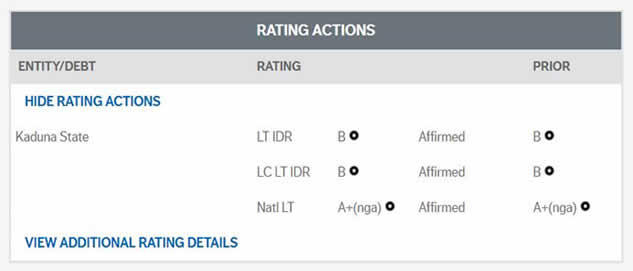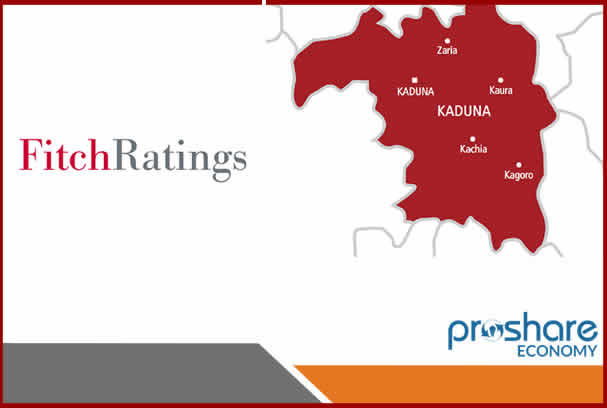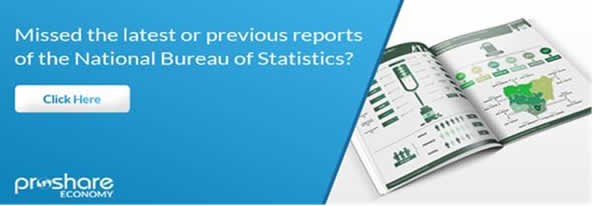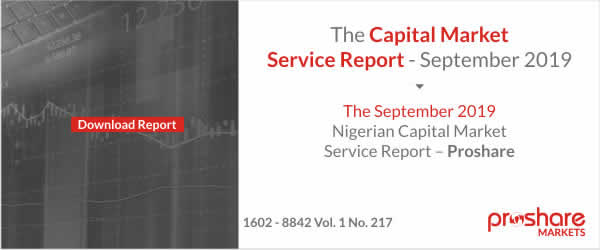Friday,October 11, 2019 /03:17 PM / By Fitch Ratings / HeaderImage Credit: Dailynigerian
Fitch hasaffirmed Nigeria's Kaduna State's Long-Term Foreign- and Local-Currency IssuerDefault Ratings (IDRs) at 'B' with a Stable Outlook.
Theaffirmation reflects Fitch's assessment of Kaduna's risk profile as Vulnerable,with a revenue structure highly dependent on oil transfers amid internallygenerated revenues (IGR) that are increasing below expectations. The ratingsalso factor in the state's growing debt to fund necessary capex for thedevelopment of basic infrastructures and social services.
The'A+(nga)' rating reflects Kaduna's low risk relative to the country's bestrisk, given strong financial and revenue support from the central government.
The StableOutlook reflects our expectation that Kaduna will improve its taxadministration while maintaining a flexible expenditure framework, which willleave some margin to adjust to macroeconomic or social downturns.
KeyRating Drivers
RevenueRobustness: Weaker
Kaduna'srevenue sources are sensitive to oil prices swings, since 50% of operatingrevenue depends on allocations of oil revenue transferred monthly from theFederal Accounts Allocation Committee (FAAC). Waning FAAC transfers amid theoil sector down-cycle have provided a stimulus to improve local tax collectionof IGR including fees, for which the states bear full responsibility forsettlement and collection, but structural benefits may only be visible withtime.
RevenueAdjustability: Weaker
Kaduna'srevenue potential depends on the state's ability to expand its tax bases, bothin terms of broadening the pool of taxpayers and enforcing tax compliance. Themain fiscal revenues are pay-as-you-earn taxes, on which Kaduna cannot set thetax rate, and land charges. The ability to enlarge the pay-as-you-earn tax baseis limited by the low level of income of the population, with over 50% livingbelow the poverty line.
ExpenditureSustainability: Weaker
Kaduna'smain responsibilities include education, healthcare, economic development,energy and environment. Past expenditure dynamics show a good track record ofcost control, with operating revenue and expenditure growing on average at thesame pace in 2010-2018, around 7.5%-8.0%. However, Fitch expects expenditure togrow above revenue in the medium term due to planned minimum wage increase forpublic employees, squeezing the operating margin to 20% from last years' 30%,further declining below 15% in case of economic downturns.
ExpenditureAdjustability: Midrange
Kaduna'scost structure is moderately flexible, as an average 40% of expenditure iscapex, which are largely financed with operating balance and can be delayed incase of need. Kaduna has significantly strengthened the legal framework forfiscal accountability and it is committed to achieving a 60:40 balance betweencapex and opex. In Fitch's view, expenditure reduction is moderately affordablegiven the high potential to increase the existing level of healthcare andinfrastructural services, while improvements in the procurement process couldimprove expenditure allocation.
Liabilitiesand Liquidity Robustness: Weaker
Thenational framework for debt is evolving and thus borrowing limits are quitewide. There are no restrictions concerning debt maturities, interest rates orcurrency exposure. Over 90% of Kaduna's debt is served through deductions fromthe statutory allocation, including loans with local banks for salariesbailouts, while the remaining part is made of intergovernmental loans.
Atend-2018, 65% of Kaduna's NGN160 billion debt, when included pension arrears,was in foreign currency and the figure is expected to increase towards 80% fora debt burden hovering around NGN300 billion in 2023, after the disbursementunder the USD350 million loan from the World Bank. The historical average costof debt is below 1% for multilateral foreign debt, while domestic debt carriesinterest rates around 10%. Kaduna's debt amortisation profile is smooth withlong maturities and a sustainable debt service well below 1x the operatingbalance.
Liabilitiesand Liquidity Flexibility: Weaker
Kaduna'sliquidity is weak and Fitch prudentially considers cash as restricted forpayables. Emergency liquidity may come from the federal government, as happenedin 2015-2016 with the Budget Support Facility helping states to tacklepressures due to liquidity shortfalls, supporting payments of salaries andpensions. Liquidity may also come from domestic banks rated in the 'B'category, which tend to limit final maturities to a few years.
DebtSustainability: 'bb'
Accordingto Fitch's rating case, Kaduna's debt payback ratio (net debt-to-operatingbalance) - the primary metric of debt sustainability assessment - coulddeteriorate to 23.4 years in the medium term, incorporating the effects of aneconomic downturn, corresponding to a 'bb' assessment. Secondary metrics -fiscal debt burden measured by net adjusted debt-to-operating revenue - couldmove above 300% and is assessed at 'b', while its actual debt-servicingcoverage ratio of 1.6x is assessed at 'a'. This justifies the state's overalldebt sustainability assessment at 'bb'.
Fitchassesses Kaduna's standalone credit profile (SCP) at 'b', reflecting acombination of a vulnerable risk profile assessment and a 'bb' assessment ofdebt sustainability. The SCP also factors in Kaduna's high debt burden comparedwith international peers, in particular South-American states and provinces.Fitch does not apply any asymmetric risk or ad-hoc support from the centralgovernment and assesses intergovernmental financing as neutral to Kaduna'sratings. The 'B' IDR reflects Kaduna's own payment capacity, while debt-servicesupport from the central government through deductions from the statutoryallocation is factored into the debt framework.
KeyAssumptions
Fitch's keyassumptions within our 2019-2023 base and rating case for the issuer include:
- Operatingrevenue growing on average below the 11% nominal national GDP growth rate bothin the base case (7%) and the rating case (2%);
- Operatingexpenditure growth at 8% in base case and 4% in the rating case (belowinflation rate), with the exception of 2019 and 2020 due to salary increases;
- Averagecost of debt expected to remain around 1.5%, with debt growing towards NGN300billion by 2023.
RatingSensitivities
A weakeningdebt amortisation profile or financial debt growth leading to consistentlyhigher debt-to-current revenue ratios and an operating balance insufficient tocover debt service with respect to Fitch's expectations could result in adowngrade. Unrest damaging economic prospects or undermining oil-relatedrevenue could also trigger a downgrade.
Fitch deemsan upgrade of Kaduna's ratings as unlikely given the Nigerian sovereign rating(B+/Stable). However, a higher overall assessment of its risk profile and apayback below five years would be positive for Kaduna's ratings.

RelatedNews
- Fitch Affirms Nigeria's Kaduna State at 'B'; Outlook Stable
- N691.11bn Generated As IGR in H1 2019
- N324.59bn Generated as IGR in Q4 2018 - NBS
- States Generate N264.38bn as IGR in Q3 2018 - NBS
- No Choice for States But to Boost IGR
- State of State's GDP: Much Ado About The Maiden State GDP Report?
- NBS Publishes 11 States Nominal GDP from 2013 to 2017
- Lagos State Governor Delegates Powers On Land Use Act To Commissioners
- Anambra Business and Investment Roundtable Holds This Week
- Imo State Constitutes Financial Advisory Committee For The State Government
- ICAN Releases Inaugural Accountability Index Assessment Report
- NFIU Bars Direct Transactions From State Joint Local Government Accounts
 Lagos, NG • GMT +1
Lagos, NG • GMT +1











 1956 views
1956 views









 Sponsored Ad
Sponsored Ad
 Advertise with Us
Advertise with Us









